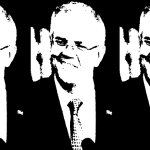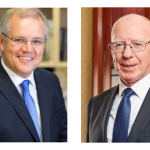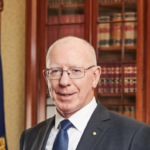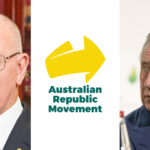Morrison’s Multiple Ministries: Power Grab Slammed and Justification Rubbished
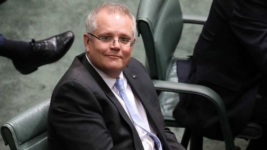
The Inquiry into Multiple Ministerial Appointments has delivered its final report into former Prime Minister Scott Morrison’s secretive ‘self-appointment’ to several ministerial positions during his tenure as the nation’s leader, rubbishing his justifications for the power grab.
The ‘Bell Inquiry’, led by former High Court Justice Virginia Bell, found Mr Morrison’s appointment to several government portfolios, including treasury, home affairs and industry, science, and energy and resources to be “unnecessary”, “corrosive”, “exorbitant” and “bizarre”.
The inquiry was commissioned in August this year by Prime Minister Anthony Albanese, after the appointments came to light following the Coalition’s election defeat.
The appointments were widely condemned at the time, with the former PM being accused of misleading parliament as a whole and even his own Coalition colleagues.
His conduct came to light only after his election defeat.
Justifications rubbished
Mr Morrison has repeatedly defended his conduct, using the excuse many in power have relied on to justify increased control: that Covid-19 presented an “extremely challenging period” and required “considerable urgency”, therefore necessitating the self-appointments.
The Bell report found that justification was no justification at all; that there was nothing to prevent others from being appointed to the positions. It noted Mr Morrison could already have authorised powers over any of the portfolios if it became “absolutely necessary” and there was therefore no need to take total control over them.
It noted that Mr Morrison had indeed used the powers he already had, overruling then-resources minister Keith Pitt to block a petroleum exploration licence, a decision completely unrelated to COVID-19.
It found the former PM’s conduct to be both secretive and destructive to democratic processes, and his actions to represent “overkill”.
Wanted even more power
The inquiry revealed for the first time that Morrison sought to additionally appoint himself as Minister for Agriculture, Water and the Environment, although he subsequently decided not to proceed with the move.
Secret scheme
It further found that some ministers were made aware of some of Morrison’s self-appointments, but many others were kept in the dark. It noted, for example, that the health portfolio was not disclosed to the Department of Health, and appointments to treasury, finance and home affairs were not disclosed to anyone but a handful of people within Morrison’s office and department who were directly involved in arranging the appointments.
Trashing transparency, accountability and democracy
Even before the report’s release, many Australians considered Morrison’s secret power grab to have dictatorial overtones and thereby trashing democratic principles and parliamentary norms and processes.
Yes, of course, the height of the Covid-19 pandemic was an ‘unprecedented time’, however it was also characterised by a Federal Government which did not inspire or encourage cohesion amongst Australia’s States and Territories.
Although, under the constitution each jurisdiction is responsible for the management of health policies, the Federal Government was heavily criticised throughout the pandemic for failing to show leadership and pull the states together. Instead it allowed them to create and enforce highly divisive public health policies which seriously impacted Australia’s ‘sense of nationalism’.
‘Secrecy’ – a hallmark of the Morrison Government
Furthermore, after the formation of the National Cabinet in March 2020, which was set up to deal with Covid-19 Scott Morrison was insistent that the same secrecy mechanisms that apply to the federal cabinet, should apply to this body.
Following a court ruling that this was a false claim, his government attempted to pass laws to hide National Cabinet documentation – a move which would mean that the cabinet’s decisions and decisions were not up for scrutiny. Not only is such secrecy poisonous to democracy, it also meant that if successful, information that might prove valuable for dealing with future pandemics or other emergencies, would be buried.
Such secrecy though, was a hallmark of the Morrison government across a range of issues, from it’s refusal to investigate fully Christian Porter’s ‘blind trust’, to never releasing the findings of an internal investigation into the multi-million dollar sports rort scandal, to the confusing media statements given about a significant payout to former Liberal staffer Rachel Miller, it’s failure to deliver a federal corruption watchdog, to name a few.
However, many of these issues, despite the appalling lack of transparency, did not strike so fiercely at the heart of democracy as the one man secretly appointing himself to several ministries did.
Ignorant to the principles of democracy
And even now that it has been blatantly pointed out by media, commentators and the Bell Inquiry itself, Mr Morrison seems still to miss the point, stressing on social media in response to the inquiry findings that he has not done anything unlawful.
The Bell inquiry has made a number of recommendations which will enhance robustness of the current system, fixing the loophole that allowed a single leader of government to gain extraordinary powers. This must not be allowed to happen, in any circumstances.
Reforms will put in place appropriate procedures which require public notice of the appointment of ministers to an office, including temporary appointments, and departments to publish lists of ministers appointed to administer them.
Prime Minister Albanese has promised to adopt all of them, “to restore the Australian people’s faith in our democratic institutions”.
In the meantime, amidst the backlash, there have been several calls for Scott Morrison to quit Parliament. So far he shows no intention of doing so.



